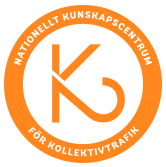Space-Time Use and Temporal Well-being of On-board Public Transport Workers
Space-Time Use and Temporal Well-being of On-board Public Transport Workers
Usership-focused innovations in new mobility services and in public transport (PT) are usually promoted by policy-makers and operators as potential solutions to decrease car ownership, traffic congestion, and air pollution by providing users with seamless, tailored, and digitalized mobility options. However, the anticipated benefits for the users of these innovations (in terms of flexibility, accessibility, time sovereignty, cost reduction) seem to receive much more attention than potential effects over the workers providing, maintaining, and monitoring the services (in terms of work-life balance, time pressure, workload, safety perception).
The project aims to understand how the current configuration of the spaces and times of passenger transport labour is related to usership-focused innovations and how it is experienced by on-board PT workers (i.e. drivers and controllers) in Sweden. In particular, the study aims to explore how this configuration affects the workers’ temporal well-being, i.e. well-being specifically pertaining to an interdependent set of time-related conditions (namely synchronization with significant others, work-life balance, time sovereignty, time wealth, time use satisfaction). The project will focus on Gothenburg, where the Västra Götalandsregion/Västtrafik have promoted, in recent years, a series of usership-focused innovations aimed at increasing the attractivity of PT, by improving accessibility for the users and by pursuing the provision of a faster, reliable, and digitalized service. The following research questions will be addressed: 1. What are the current spaces and times of PT work? 2. How is this space-time configuration experienced by PT on-board workers, particularly in relation to their temporal well-being?
The study aims to provide knowledge and policy recommendations for the improvement of the working conditions and working environments in the PT sector and for the development of an innovative and accessible PT that takes into consideration the well-being of both the users and the workers. The project will draw upon and contribute to research on transport-, space- and time-related inequalities and on mobility justice, adopting a critical and intersectional perspective.
